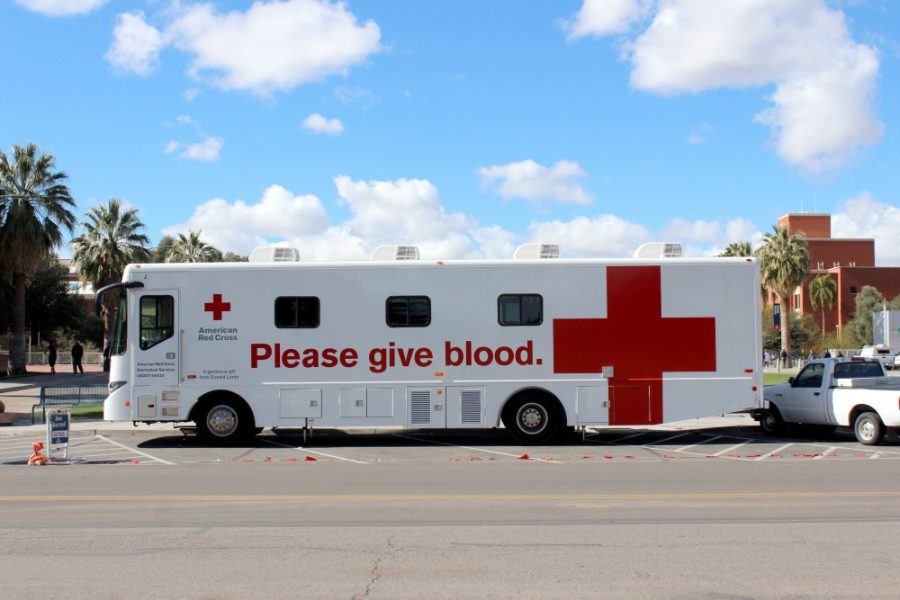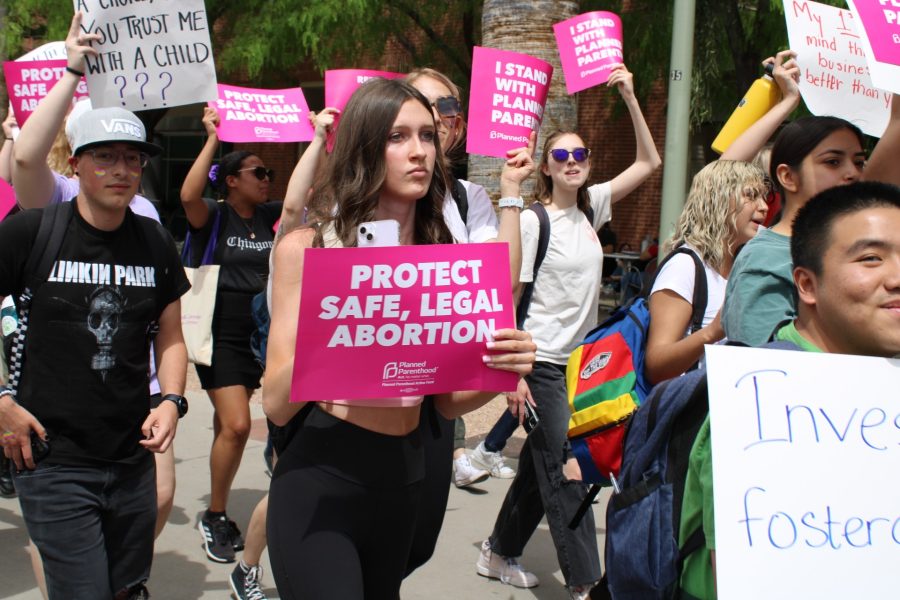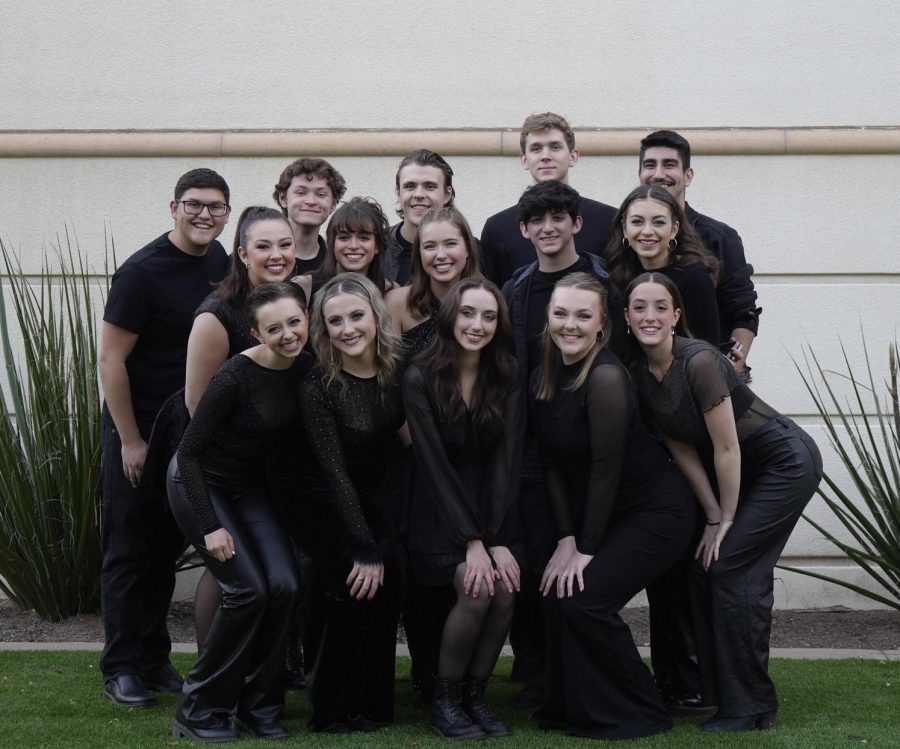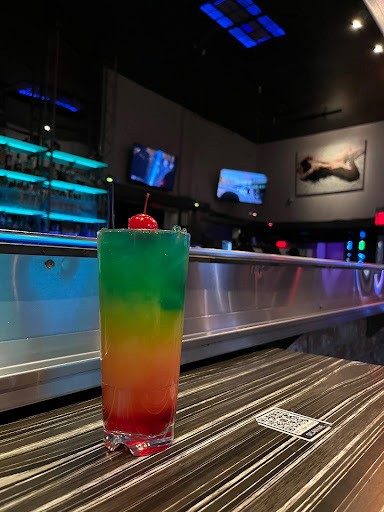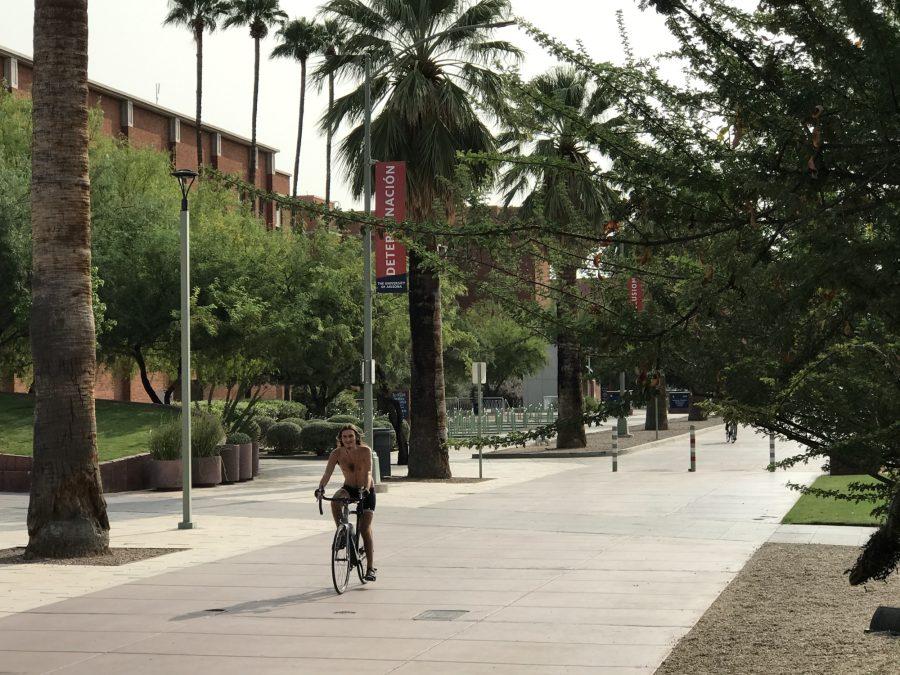A blood shortage has swept the nation after heavy winter storms prevented donations to the Red Cross. There is always a demand for blood, and now Arizona is doing its part to give back.
“Blood is always in demand because red blood cells are only good for 42 days after your donation, so that diminishes the supply if they aren’t used right away,” said Mia Bottcher, president of the UA Red Cross Club.
The 25 to 30 regular members of the UA Red Cross Club are holding blood drives all over campus to amp up its presence and to combat the winter shortage.
RELATED: UA alum brings mass spectrometry testing to Tucson
“We feel responsible to get more blood donations because our blood region is actually an exporter,” Bottcher said. “We get blood and we give it to the hospitals around us, but then we export to the rest of the country to hospitals in need. So when we are facing a blood shortage across the country, they will turn to an exporter region to help out.”
This makes the UA an important place to donate blood. Luckily, Arizona doesn’t have the winter snow and ice storms that prevent people from making it to their regular donation appointments.
“Between November and December there were 37,000 fewer donations,” Bottcher said. “There were 90 blood drives canceled just in December alone.”

Sophia Miller-Gutierrez, a psychology student, smiled and chatted as the bag connected to her arm slowly filled up with the lifesaving liquid at Friday’s campus drive.
“I have donated in the past and I have always thought it was important to help others,” Miller-Gutierrez said. “This is my way of helping and giving back.”
Blood is an important commodity, Bottcher said. Each campus blood drive aims to collect about 20 pints of blood, so the shortage quickly adds up when drives are canceled.
“In some extreme cases, like if someone is in a car accident, they could need up to 100 pints of blood,” Bottcher said. “When you donate blood you just donate one pint, but from one pint of blood you can save up to three lives, because they can use the red blood cells to help someone, they can use the plasma or the platelets.”
Many people have never donated blood and don’t know where to start. Part of the Red Cross Club’s mission is to educate students about blood donation and how they can get involved. One tactic that has proven to work is talking to students on the mall.
“The majority of people who don’t donate are people that just haven’t been asked,” Bottcher said. “They often aren’t aware that they have this opportunity, or a lot of people are shy to go out and say ‘hey, I’d like to donate my blood.’”
RELATED: UA immunologist answers questions on why you should get the flu vaccination
The process may not be as scary as people think, said Leticia Magaña, a team supervisor and phlebotomist who has worked for the Red Cross for 10 years.
“With our first-time donors we always do our best to make them comfortable and put them at ease,” Magaña said. “They expect the worst but it really is a very easy thing to do.”
Magaña took Miller-Gutierrez’s blood at the drive on Friday as music blasted and conversations flowed in the upbeat environment.
Because of the shortage, O negative, the universal blood type, is the most in demand, but anything and everything helps, Magaña said.
The “Blood Bus” is parked on Cherry Avenue every Wednesday, so students always have the opportunity to donate and help during this time of shortage.
There are some important pieces of advice to remember before you offer up your arm.
“Eat iron rich foods like beef or chicken, also nuts and beans are good to make sure that you are good to go,” Bottcher said. “Also, drinking a lot of water is really helpful and it will make your donation process go a lot easier.”
Follow Tirion Morris on Twitter.



